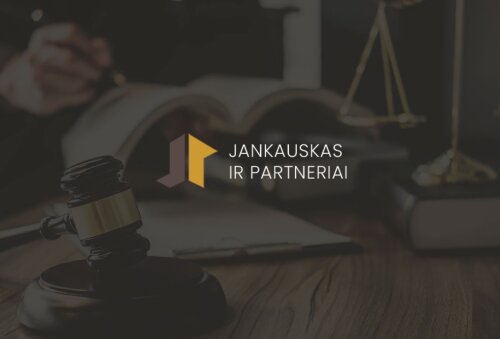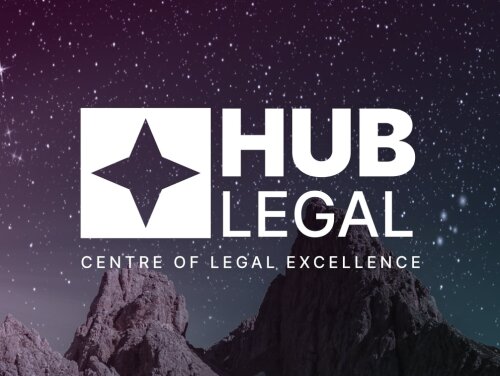Best Energy Regulatory Law Lawyers in Republic of Lithuania
Share your needs with us, get contacted by law firms.
Free. Takes 2 min.
Or refine your search by selecting a city:
List of the best lawyers in Republic of Lithuania
About Energy Regulatory Law in Republic of Lithuania
Energy Regulatory Law in the Republic of Lithuania deals with legal frameworks governing the production, transmission, distribution, and supply of energy, including electricity, natural gas, heat, and renewable resources. This body of law ensures the effective regulation of the energy market, promotes competition, guarantees the protection of consumer rights, and helps achieve national and European Union energy policy objectives, such as sustainability, security of supply, and energy efficiency. In Lithuania, the National Energy Regulatory Council (NERC) plays a central role in supervising and enforcing these regulations. Energy law covers a wide range of activities, from licensing energy providers to setting tariffs and resolving market disputes.
Why You May Need a Lawyer
Legal assistance in energy regulatory matters is often essential for individuals, businesses, and organizations operating or investing in Lithuania’s energy sector. Common situations where legal help is needed include:
- Navigating the complex requirements for obtaining energy sector licenses or permits
- Interpreting and complying with rapidly changing local and EU energy regulations
- Negotiating and drafting power purchase agreements or natural gas contracts
- Managing disputes with regulators or other market participants
- Participating in energy infrastructure projects or grid connections
- Addressing renewable energy incentives and support scheme eligibility
- Challenging regulatory decisions or seeking fair tariff determinations
Given the technical and regulatory complexities of the energy market, specialized legal advice helps avoid costly mistakes and ensures compliance with all obligations.
Local Laws Overview
Lithuania’s energy sector is primarily regulated by national laws that implement and supplement European Union directives. The most important local laws include:
- Law on Energy - Establishes the basic principles of energy policy, sector structure, and regulatory oversight.
- Law on Electricity - Governs the electricity market, including trading, tariffs, generation, transmission, and distribution.
- Law on Natural Gas - Regulates the natural gas sector, covering market organization, access, and safety.
- Law on Renewable Energy - Provides incentives and rules for the development and integration of renewable energy sources.
- National Energy Regulatory Council (NERC) - The independent regulator responsible for licensing, monitoring, and tariff setting across all energy sectors.
Compliance requirements apply to both local and foreign entities. Licensing, reporting, and environmental standards must be observed. EU regulations on free market access, competition, unbundling of energy services, and energy efficiency are strictly enforced in Lithuania.
Frequently Asked Questions
What role does the National Energy Regulatory Council (NERC) play?
The NERC is Lithuania’s main energy sector regulator. It is responsible for licensing energy companies, approving tariffs, ensuring market transparency, and protecting consumer interests. It also resolves disputes and enforces regulatory standards.
Do I need a license to operate in Lithuania’s energy market?
Most energy activities, including power generation, supply, distribution, and trading, require a license from NERC. The application process involves satisfying technical, financial, and legal requirements.
How are energy prices regulated?
NERC sets or approves tariffs for regulated activities, such as transmission and distribution. For competitive segments like electricity supply, prices are determined by market competition but subject to oversight to prevent abuse.
Are there incentives for renewable energy projects?
Yes, Lithuania offers various incentives for renewables, such as feed-in tariffs, auctions, or support schemes. Agreements and eligibility are governed by the Law on Renewable Energy and specific NERC decisions.
What are the main compliance obligations for energy companies?
Key obligations include obtaining and maintaining relevant licenses, meeting reporting requirements, complying with safety and environmental norms, and adhering to market rules set by law and the regulator.
Can foreign companies participate in Lithuania’s energy market?
Yes, foreign investors and companies are welcome, but must comply with the same licensing and regulatory requirements as Lithuanian entities. Some grid access and interconnection rules may also apply.
How are disputes in the energy sector resolved?
Most regulatory disputes are settled by NERC, with the possibility of further appeal to administrative courts. Commercial disputes may be resolved through negotiation, arbitration, or court litigation.
What laws apply to electricity grid connections?
Grid connection is governed by the Law on Electricity, NERC’s regulations, and technical standards issued by the relevant transmission or distribution system operator.
Are there obligations concerning energy efficiency?
Yes, energy companies and large consumers must implement energy efficiency measures and report on their achievements in accordance with national and EU requirements.
How are consumer rights protected in the energy market?
Consumers benefit from regulated contract terms, transparent pricing, and the right to dispute resolution with their supplier or NERC. There are also special protections for vulnerable consumers.
Additional Resources
For more information or assistance, consider the following resources:
- National Energy Regulatory Council (NERC) - The main regulator for all energy sectors.
- Ministry of Energy of the Republic of Lithuania - Responsible for setting national energy policy and legislation.
- Lithuanian Energy Agency - Offers information on national energy strategy and projects.
- Consumer Rights Protection Authority - Assists with complaints and consumer protection issues in the energy sector.
- Official Gazette (Valstybės žinios) - For up to date laws and regulatory acts.
Next Steps
If you believe you need legal assistance in any matter related to Energy Regulatory Law in Lithuania, follow these steps:
- Identify the specific issue you are facing, such as licensing, compliance, tariffs, or disputes.
- Gather all relevant documents, contracts, and correspondence.
- Contact a lawyer or law firm specializing in energy law or regulatory law in Lithuania.
- Arrange a consultation to assess your situation and discuss strategies for resolution or compliance.
- If your issue involves regulatory bodies, be prepared to participate in official proceedings or filings as guided by your legal advisor.
- Stay informed about regulatory changes by consulting official resources and attending industry events.
Prompt legal advice can help protect your interests, ensure compliance, and facilitate successful participation in Lithuania’s dynamic energy market.
Lawzana helps you find the best lawyers and law firms in Republic of Lithuania through a curated and pre-screened list of qualified legal professionals. Our platform offers rankings and detailed profiles of attorneys and law firms, allowing you to compare based on practice areas, including Energy Regulatory Law, experience, and client feedback.
Each profile includes a description of the firm's areas of practice, client reviews, team members and partners, year of establishment, spoken languages, office locations, contact information, social media presence, and any published articles or resources. Most firms on our platform speak English and are experienced in both local and international legal matters.
Get a quote from top-rated law firms in Republic of Lithuania — quickly, securely, and without unnecessary hassle.
Disclaimer:
The information provided on this page is for general informational purposes only and does not constitute legal advice. While we strive to ensure the accuracy and relevance of the content, legal information may change over time, and interpretations of the law can vary. You should always consult with a qualified legal professional for advice specific to your situation.
We disclaim all liability for actions taken or not taken based on the content of this page. If you believe any information is incorrect or outdated, please contact us, and we will review and update it where appropriate.
Browse energy regulatory law law firms by city in Republic of Lithuania
Refine your search by selecting a city.















